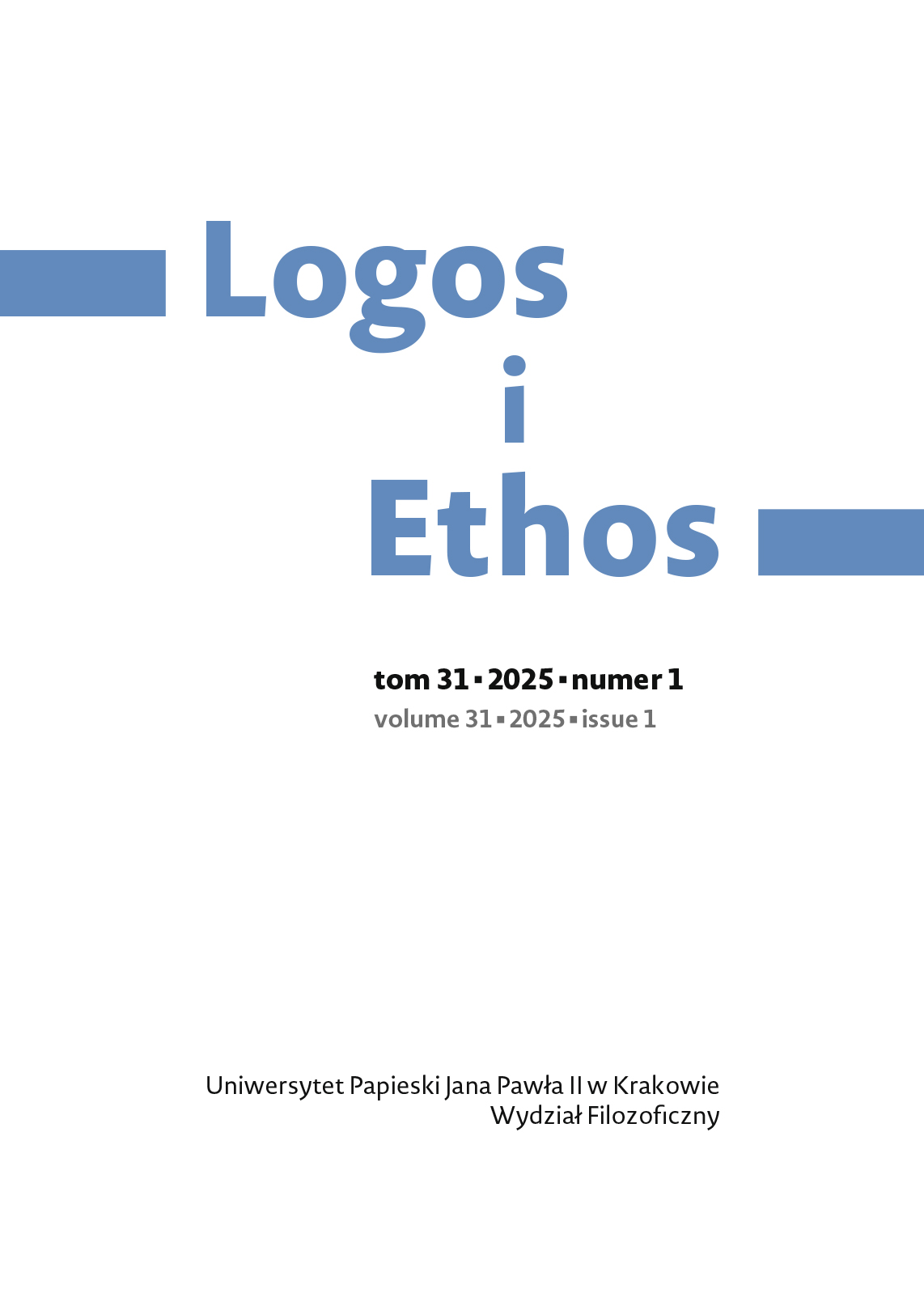Repetition. The Kierkegaardian aspects of Marin Heidegger’s philosophy
DOI:
https://doi.org/10.15633/lie.31106Keywords:
Kierkegaard, Heidegger, time, repetition, irony, existenceAbstract
The article is a comparative account of Martin Heidegger’s philosophy with Kierkegaard’s work. The main theme is the category of repetition and, related to it, the subject of temporality. In the first part, the works of Kieregaard are analyzed. Then, against this background, the article shows how certain themes of the Danish author resonated in Martin Heidegger’s philosophy.
References
Buben A., Heidegger’s reception of Kierkegaard: the existential philosophy of death, „British Journal for the History of Philosophy” 21 (2013) no. 5, s. 967–988, https://doi.org/10.1080/09608788.2013.825576.
Bursztyka P., Spełniona subiektywność. Powtórzenie jako doświadczenie egzystencjalne według Sørena Kierkegaarda, „Sztuka i Filozofia” 24 (2004), s. 69–87.
Bursztyka P., Powtórzenie jako doświadczenie egzystencjalne (Freud, Nietzsche, Kierkegaard), „Przegląd Filozoficzny — Nowa Seria” 13 (2004) nr 1 (49), s. 107–123.
Caputo J. D., Radical hermeneutics. Repetition, deconstruction and the hermeneutic project, Bloomington– Indianapolis 1987.
Heidegger M., Bycie i czas, tłum. B. Baran, Warszawa 2004.
Heidegger M., List o humanizmie, tłum. J. Tischner, w: M. Heidegger, Budować, mieszkać, myśleć. Eseje wybrane, oprac. K. Michalski, Warszawa 1977, s. 76–127.
Kierkegaard S., Albo — albo, tłum. M. Hammermeister, Gdańsk 2015.
Kierkegaard S., O pojęciu ironii z nieustającym odniesieniem do Sokratesa, tłum. A. Dajkowska, Warszawa 1999.
Kierkegaard S., Powtórzenie. Przedmowy, tłum. B. Świderski, Warszawa 2000.
Khawaja N., Heidegger’s Kierkegaard: philosophy and religion in the tracks of a failed interpretation, „The Journal of Religion” 95 (2015) no. 3, s. 295–317, https://doi.org/10.1086/681111.
Magurshak D., „The concept of anxiety”: the keystone of the Kierkegaard–Heidegger relationship, w: S. Kierkegaard, The concept of anxiety, ed. R. L. Perkins, Macon 1985, s. 167–195 (International Kierkegaard Commentary, 8).
Magurshak D., Despair and Everydayness: Kierkegaard’s corrective contribution to Heidegger’s notion of fallen everydayness, w: S. Kierkegaard, The sickness unto death, ed. R. L. Perkins, Macon 1987, s. 209–237.
McCarthy V., Martin Heidegger: Kierkegaard’s influence hidden and in full view, in: Kierkegaard and existentialism, ed. J. Steward, London–New York 2016, s. 95–127 (Kierkegaard Research: Sources, Reception and Resources, 9).
Patios G., Kierkegaard’s concept of history, „Prolegomena. Časopis za filozofiju” 13 (2014) no. 1, s. 85–106.
Pávliková M., Tavilla I., Repetition as a path to authentic existence in Kierkegaard’s work, „Journal of Education, Culture and Society” 2 (2023), s. 105–115.
Sosnowski M. A., Pokochać dialektykę. O pojęciu miłości filozofii spekulatywnej z nieustającym odniesieniem do Sørena Kierkegaarda, Kraków 2011.
Spanos W. V., Heidegger and criticism. Retrieving the cultural politics of destruction, Minneapolis 1993.
Strzelecki R., Etyka a czas, „Kultura i Rozwój” (2017) nr 4 (5), s. 96–102. https://doi.org/10.7366/KIR.2017.4.5.07.
Strzelecki R., Czas etyki a czas jako chrono-logia, „Kwartalnik Filozoficzny” 44 (2016) z. 2, s. 29–44.
Strzelecki R., Odpowiedzieć Byciu. Odpowiedzieć Innemu, Kraków 2014.
Szwed A., Rozum wobec chrześcijańskiego Objawienia. Kant, Hegel, Kierkegaard, Kęty 2011.
Świderski B., Kierkegaard jako powieściopisarz, „Teksty Drugie” (1994) nr 2 (26), s. 172.
Wahl J., Transcendence and the concrete: selected writings, Bronx 2016, https://doi.org/10.5422/fordham/9780823273010.001.0001.
Watts D., Kierkegaard, repetition and ethical constancy, „Philosophical Investigations” 40 (2017) no. 4, s. 414–439, https://doi.org/10.1111/phin.12169.
Żelazny M., Filozofia egzystencji u Kierkegaarda, Jaspersa i Heideggera, „Studia z Historii Filozofii” 3 (2012) nr 3, s. 219–230, https://doi.org/10.12775/szhf.2012.014.
Downloads
Published
Issue
Section
License
Copyright (c) 2025 Adriana Joanna Mickiewicz

This work is licensed under a Creative Commons Attribution 4.0 International License.
Authors who publish with this journal agree to the following terms:
- Authors retain the copyright and full publishing rights without restrictions, and grant the journal right of first publication with the work simultaneously licensed under a Creative Commons Attribution 4.0 International License that allows others to share the work with an acknowledgement of the work's authorship and initial publication in this journal.
- Authors are able to enter into separate, additional contractual arrangements for the non-exclusive distribution of the journal's published version of the work (e.g., post it to an institutional repository or publish it in a book), with an acknowledgement of its initial publication in this journal.
- Authors are permitted and encouraged to post their work online (e.g., in institutional repositories or on their website) prior to and during the submission process, as it can lead to productive exchanges, as well as earlier and greater citation of published work (See The Effect of Open Access).

